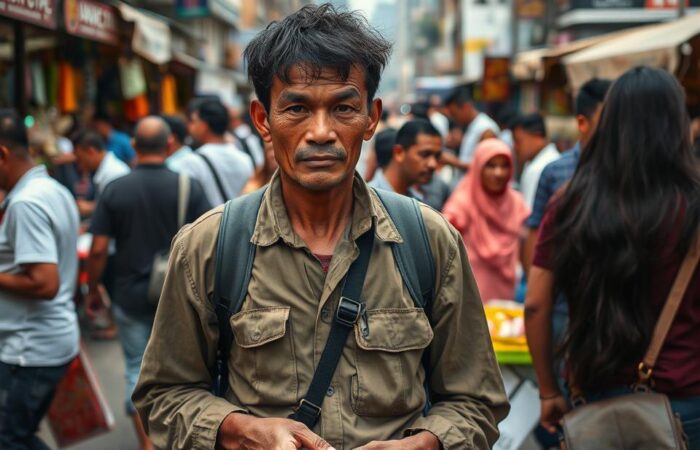If you’re wondering how to navigate the challenges of having your Afghan marriage recognized in Brazil, Vieira Braga Advogados can help you at every stage. They’ll clarify what documents you need, how to translate and notarize them, and what steps are crucial for legalization. It’s not just about gathering papers—each step presents its own complexities. Understanding the process is key, especially as you consider what comes next and how to handle potential legal obstacles.
Understanding Afghan Marriage Documents

So, what exactly do Afghan marriage documents entail? When you get married in Afghanistan, you receive a Nikah Nama, which serves as the official marriage contract. This document contains essential details such as your names, your parents’ names, birth dates, nationalities, professions, and addresses. It also records the names and signatures of witnesses and the officiant, plus the date and location of your marriage. The Nikah Nama includes important information about agreed dowries, the consent of both parties, and sometimes even your fingerprint for authenticity.
You’ll notice the document is usually in Dari or Pashto, Afghanistan’s official languages. Each detail on the Nikah Nama establishes your marital status under Afghan law. When you need your marriage recognized abroad, authorities typically refer to the Nikah Nama as proof. Understanding each section helps you confirm its authenticity and ensures you gather the correct paperwork before starting any official recognition or legalization process. Because the complexity of immigration laws poses risks of errors or delays, consulting with an immigration lawyer before submitting Afghan marriage documents for international recognition is highly recommended.
Translation and Certification Requirements
When you need your Afghan marriage documents accepted outside Afghanistan, translation and certification become crucial steps. You can’t rely on the original documents in Dari or Pashto; most authorities abroad will require a certified translation into their official language. A professional translator should handle your documents to avoid errors that could delay your process. After you get the translation, certification is the next step. This often involves a notary public or an official stamp verifying the accuracy and legitimacy of the translation. For individuals navigating this process, seeking advice from specialized immigration lawyers significantly reduces the risk of document rejection or delays.
To clarify the requirements, here’s a simple table:
| Step | Explanation |
|---|---|
| Translation Needed | Convert originals into the local language |
| Use Certified Translator | Ensures accurate, legally valid translation |
| Certification Process | Notary or official verifies translation authenticity |
| Retain Both Versions | You’ll need both original and translated documents |
Collecting Mandatory Supporting Documents

Now you’ll need to gather the mandatory documents to support your case. Make sure you have the correct identity documents, official marriage certificates, and follow the proper steps for authentication. Let’s go through each of these requirements so you don’t miss anything crucial. Consulting an immigration lawyer ensures you comply with Brazilian laws and helps avoid delays or rejections during your application process.
Essential Identity Document List
Documentation forms the foundation of the Afghan marriage recognition process, making it crucial to gather all mandatory identity papers before proceeding. You’ll streamline your experience by preparing the right documents from the outset. Authorities typically require originals and certified translations, so check each item carefully for accuracy. Having complete documents speeds up processing and ensures legal recognition without setbacks. Securing support from professionals with specialized legal assistance can further protect you from costly errors during the documentation and approval process.
Here are the key identity documents you’ll need:
| Required Document | Details/Notes |
|---|---|
| Passport | Valid, current, with photo and signature |
| Afghan Tazkira | National ID card (Afghan citizens only) |
| Proof of Address | Utility bill, bank statement, or rental contract |
| Birth Certificate | Original and certified translation |
| Proof of Marital Status | Single status certificate or divorce decree |
Gather these documents early for an efficient process.
Required Marriage Certificates
Several official marriage certificates serve as crucial supporting documents for Afghan marriage recognition. To proceed, you’ll need to gather the original Afghan marriage contract, commonly called the “Nikah Nama.” Make sure this certificate includes both parties’ full names and the signatures of the officiant and witnesses. If you possess a bilingual or translated version, include that as well. If your marriage was also registered with Afghanistan’s Ministry of Justice or a civil authority, secure a certified copy of that registration document. Keep photocopies alongside each original for submission requests. Cross-check all information for consistency with your identity documents to avoid delays or questions later in the process. Ensuring these certificates are complete and accurate will help streamline your marriage’s legal recognition abroad. If you have any uncertainty about which documents to prepare, seeking professional guidance can significantly increase your chances of a successful application and prevent costly bureaucratic errors.
Authentication Process Guidelines
Once you’ve assembled your marriage certificates, it’s important to focus on the authentication process required for legal recognition outside Afghanistan. You’ll need to gather specific supporting documents to start. Usually, authorities require certified copies of your marriage certificate, valid identification documents for both spouses, and proof of residence. Make sure all documents match the information on your marriage certificate to avoid delays.
Next, get your documents authenticated by the Afghan Ministry of Foreign Affairs. This step ensures your paperwork carries official government recognition. If the documents will be used abroad, you may also need to have them legalized at the embassy or consulate of the relevant country. Be thorough with each stage, since missing documents or errors could extend the process significantly or result in rejection. Engaging with professional legal guidance during this phase can help streamline your application and reduce the risk of errors that may lead to delays or denials.
Legalization Process at the Afghan Consulate

After you’ve gathered all required marriage documents, your next step is to have them legalized at the Afghan Consulate. You’ll need to personally visit or send a designated representative to the consular office with your authenticated documents and original identification. Before you go, it’s important to check the consulate’s current requirements, such as completed application forms, passport copies, and applicable fees. Each consulate may have its own guidelines, so call ahead or consult their website for specific instructions.
When you arrive, present your paperwork for review. The consular officials will verify the authenticity of your documents and ensure they’ve been properly authenticated by the relevant authorities. Once satisfied, they’ll affix the official stamp and signature required for legalization. This stamp certifies that your marriage documents are now officially recognized by Afghan authorities. Keep your receipts and copies, as you may need them for future steps in the marriage recognition process. If you are planning to reside in Brazil after legalization, understanding register with Federal Police is an important next step in achieving legal residency status.
Brazilian Notarization Procedures
Now you’ll need to gather specific documents for Brazilian notarization and understand how the authentication process works. It’s important to know which papers you must present and what steps officials expect you to follow. Watch out for common procedural challenges so you’re prepared to address them quickly. For added security and to avoid common pitfalls, consider consulting a specialized immigration lawyer who can guide you through the correct documentation and legal requirements.
Required Notarial Documents
Before Brazilian authorities can recognize your Afghan marriage, you’ll need to gather specific documents and have them properly notarized. It’s important to ensure every paper is official and meets Brazil’s legal standards. These notarized documents demonstrate to Brazilian officials that your marriage meets all required criteria and is valid abroad. Here’s what you should gather and notarize:
- Afghan Marriage Certificate – Obtain the original certificate from Afghanistan.
- Certified Translation – Have the marriage certificate translated into Portuguese by a sworn translator.
- Identification Documents – Provide notarized copies of your and your spouse’s passports and birth certificates.
- Proof of Marital Status – Present official evidence that you were both single prior to marriage.
Double-check all copies for accuracy before visiting a Brazilian notary. Consulting with an immigration lawyer can help you avoid costly bureaucratic errors in the recognition and legalization process.
Authentication Process Overview
Once you’ve gathered your notarized documents, you’ll need to follow Brazil’s authentication procedures to ensure your Afghan marriage is officially recognized. You must first submit your documents to the local “Cartório” (notary office) for verification. The Cartório checks the notarizations for accuracy and compliance with Brazilian standards. Once verified, your documents may require an official seal or stamp to authenticate their validity within Brazil. Following this, most foreign documents need consular legalization or an apostille, depending on bilateral agreements. For Afghan documents, you’ll typically need consular legalization. Make sure all translations are certified and accompany each document. Double-check that every step fits the current requirements since Brazilian regulations can change. If you have questions or face complications in the process, seeking specialized legal assistance from an immigration lawyer can help you avoid errors and increase the likelihood of your marriage being recognized. This systematic approach greatly increases your chances of successful marriage recognition.
Common Procedural Challenges
Even with careful preparation, you’ll likely encounter some procedural hurdles when submitting Afghan marriage documents for notarization in Brazil. Brazilian notarial offices have strict rules and formalities, which often clash with how foreign documents are prepared or translated. You need to be aware of these key challenges so you can minimize delays and frustration throughout the process.
Here’s a snapshot of what you may face:
- Document format inconsistencies—Afghan certificates might not follow the Brazilian required formats.
- Translation issues—Certified and sworn translations are mandatory, and minor errors will trigger rejections.
- Apostille or legalization gaps—Brazil requires specific authentication; missing steps cause setbacks.
- Identity verification obstacles—Your identification might not perfectly match the documentation, leading to additional scrutiny.
Understanding these hurdles helps you respond quickly and efficiently.
Apostille Certification Steps
Navigating apostille certification involves a series of clear steps that ensure your Afghan marriage documents gain international legal recognition. First, you’ll need to verify that each document, like your marriage certificate, is original and issued by the appropriate Afghan authority. Next, translate your documents into Portuguese using a sworn translator if they’re not already in that language, as Brazil requires this for legal procedures.
Once the documents are ready, approach Afghanistan’s Ministry of Foreign Affairs to certify their authenticity. With this national endorsement, you’ll proceed to the apostille process, handled by a designated authority in Afghanistan. The apostille certifies to Brazilian authorities that your documents are legitimate and meet international standards.
Throughout the process, keep copies and detailed records of all certifications and translations. Double-check every requirement, as missing information can cause delays or rejections. By carefully following these steps, you’ll help ensure the swift acceptance of your marriage documents in Brazil.
Submission to Brazilian Civil Registry

After securing apostille certification, you’ll need to present your authenticated and translated Afghan marriage documents to the Brazilian Civil Registry (Cartório). At this stage, you’ll interact directly with local officials responsible for official registration. It’s important to ensure each document meets Brazilian legal standards before submission, as the Cartório won’t process incomplete or improperly translated forms.
To paint a clear picture, here’s what the process typically involves:
- Gather all documents: Collect your apostilled, translated marriage certificate and identification documents.
- Visit the Cartório: Go to the Civil Registry office in the city where you reside.
- Submit documentation: Hand over your documents for review and provide additional information if requested.
- Receive official receipt: Upon acceptance, you’ll receive a protocol number or receipt—keep this safe as proof of submission.
This step is essential for legal recognition of your Afghan marriage in Brazil.
Addressing Potential Legal Challenges
While Brazilian authorities generally recognize foreign marriages that fulfill legal requirements, you might still encounter challenges during the registration process. Documentation from Afghanistan often requires careful review, and Brazilian officials may ask for specific evidence or additional authentication to verify legitimacy. Sometimes, documents lack the required Apostille or suitable consular legalization, leading to delays or rejections.
You should expect that translation accuracy and certification are scrutinized. Any missing, incomplete, or incorrectly translated document can halt your application until it’s corrected. Discrepancies in names, dates, or official stamps may also raise concerns, prompting further investigation by registry officials.
If your marriage certificate appears damaged or does not meet formal standards, you’ll likely need to obtain new or replacement documents from Afghan authorities. Be prepared to present supporting identification and possibly affidavits to clarify inconsistencies. Remaining proactive and organized will strengthen your case and prevent unnecessary setbacks through the Brazilian civil registry process.
Personalized Assistance From Vieira Braga Advogados

With Vieira Braga Advogados, you gain direct access to legal professionals who understand the challenges of validating Afghan marriages in Brazil. Their team provides tailored legal guidance, making your journey smoother and more secure. You don’t have to tackle complex processes alone; instead, you’ll benefit from support uniquely designed for your specific case.
Here’s what personalized assistance means for you:
- One-on-one Consultations: You’re offered individualized meetings to address your questions and concerns directly.
- Document Review and Preparation: They help ensure that every document meets Brazilian legal standards before submission.
- Step-by-Step Process Guidance: You receive clear instructions for each stage—no guesswork or confusion.
- Continuous Updates: You’ll always know the status of your case, thanks to regular, proactive communication.
With Vieira Braga Advogados, you can move forward confidently, knowing experts are handling every detail of your Afghan marriage recognition and legalization in Brazil.
Frequently Asked Questions
How to get a marriage certificate in Afghanistan?
Marriage certificates are issued by the local Sharia court or municipal civil registry, requiring identification documents of both spouses and witnesses.
What is the marriage tradition in Afghanistan?
Afghan marriages often follow religious and cultural customs, including family negotiations, formal ceremonies, and sometimes separate celebrations for men and women.
Do Afghans marry outside their culture?
Yes, though less common, some Afghans marry across ethnic or cultural lines, especially in diaspora communities, often blending traditions.
How Long Does the Entire Marriage Legalization Process Usually Take?
The entire marriage legalization process usually takes anywhere from a few weeks to several months, depending on the countries involved and their specific requirements. You’ll need to gather documents, have them translated and authenticated, and possibly attend interviews or meet other conditions. If you stay organized and promptly provide what’s needed, you can speed things up. It’s smart to check with the relevant authorities early on, so you can anticipate and handle any delays quickly.
What Are the Typical Costs Involved in Legalizing an Afghan Marriage in Brazil?
You’ll usually face costs that include official translation fees, document authentication, possible consular fees, and notary expenses, totaling anywhere from R$2,000 to R$5,000. If you hire a lawyer, legal fees will add to your expenses. Don’t forget, some extra charges may pop up if paperwork needs corrections or special handling. It’s smart to prepare for both fixed and unexpected expenses to avoid surprises during the legalization process.
Can Same-Sex Afghan Marriages Be Recognized and Legalized in Brazil?
Yes, you can have a same-sex Afghan marriage recognized and legalized in Brazil, since Brazil recognizes and performs same-sex marriages. You’ll need to provide all required documentation—translated and legalized—including your marriage certificate. Brazilian authorities don’t consider the origin country’s laws on same-sex marriage when recognizing such unions. As long as you meet Brazil’s legal conditions, you’ll be able to register your marriage and enjoy the same rights as other married couples.
What Happens if One Spouse Cannot Be Present During Legalization Steps?
If one spouse can’t be present during the legalization steps, you may still proceed by granting a power of attorney. This document lets someone else represent the absent spouse during the process. You’ll need to get the power of attorney properly legalized and translated, depending on the requirements. Make sure you follow correct procedures, since missing or incorrect documents can delay or even halt the process until all paperwork is in order.
Are There Expedited Services Available for Urgent Marriage Legalization?
Yes, you can usually request expedited services for urgent marriage legalization, but it depends on the specific rules of the government or consular authority handling your case. You’ll need to provide valid reasons for the urgency, such as pending travel, family reunification, or other critical needs. Be prepared to pay extra fees, submit supporting documents, and comply with any special procedures they require. It’s wise to contact the relevant authority directly.
Conclusion
With Vieira Braga Advogados by your side, you won’t have to face the complexities of Afghan marriage recognition and legalization in Brazil alone. Their team guides you through every step, from document translation and certification to consular legalization and civil registry submission. You’ll receive clear, personalized support, making the process less stressful and more efficient. Trust Vieira Braga Advogados to help ensure your Afghan marriage is recognized smoothly and complies fully with Brazilian legal requirements.




